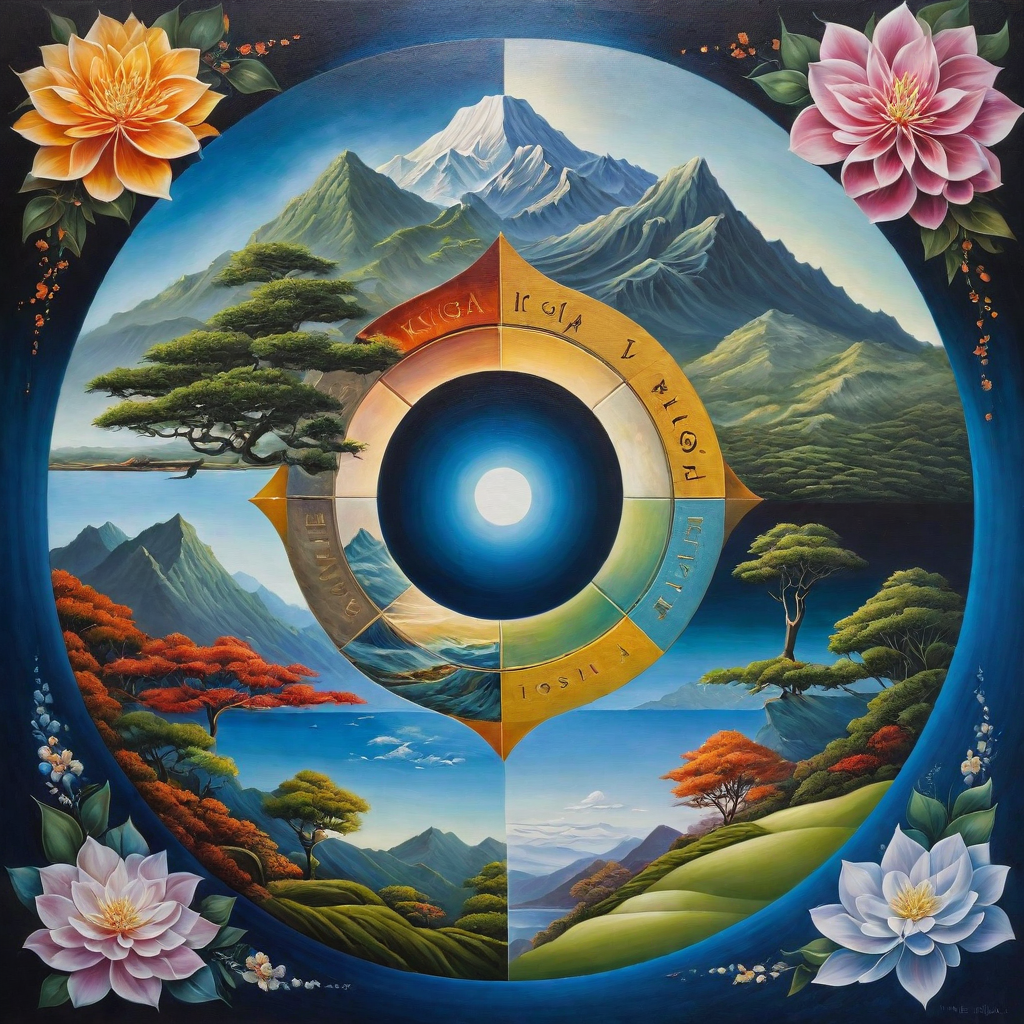The Path to Happiness: Embracing Ikigai and Stoicism in Life's Journey (Part IV of #DecadeReflection)
Introduction
In our pursuit of
happiness and contentment, we often find ourselves seeking guidance from
various philosophies and concepts that offer insight into the art of living.
Two such principles, Ikigai and Stoicism, hold profound wisdom that can
illuminate our path to genuine fulfillment. By exploring the intertwining
threads of Ikigai and Stoicism, we embark on a journey towards discovering the
true essence of happiness and contentment.
The Essence of Ikigai
At the core of
Ikigai lies the belief that each individual possesses a unique purpose, a
reason for being. Derived from the Japanese culture, Ikigai represents the joy
and goal of living. It is the harmony that arises when our passions,
professions, vocations, and missions intersect. Embracing Ikigai calls for a
deep introspection, a voyage within ourselves to uncover the hidden treasures
that define our existence. Just as the Japanese proclaim, everyone has an
Ikigai, but it requires a profound and often arduous search to unveil it.
The Stoic Path
Parallel to the
concept of Ikigai, Stoicism, an ancient Greek philosophy, offers valuable
insights on how to navigate the complexities of life. Stoicism teaches us to
focus on the aspects within our control and accept the inevitability of
external circumstances. Epictetus, Marcus Aurelius, and other Stoic
philosophers remind us that happiness is not contingent upon external events
but rather lies within our own thoughts and actions. By developing resilience,
embracing virtues, and cultivating a tranquil mind, Stoicism guides us towards
an unwavering sense of contentment and peace.
Finding Happiness in Life's Work
One significant
aspect where Ikigai and Stoicism intersect is in our pursuit of meaningful
work. Ikigai emphasizes the importance of aligning our passions, professions,
and missions, finding that career-high where we experience a profound sense of
purpose and fulfillment. Similarly, Stoicism teaches us to focus on our inner
disposition, finding contentment in the tasks we undertake, regardless of
external circumstances. By embodying the principles of Ikigai and Stoicism in
our professional lives, we can transform our work into a source of joy and
fulfillment.
The Inner Journey of Self-Discovery
Both Ikigai and
Stoicism emphasize the significance of introspection and self-awareness. The
search for Ikigai requires delving deep into our core, examining our values,
passions, and aspirations. Likewise, Stoicism invites us to reflect on our
thoughts and judgments, cultivating a mindful awareness of our inner landscape.
Through self-reflection, we gain clarity about what truly brings us happiness
and contentment, enabling us to make conscious choices aligned with our
authentic selves.
Embracing a Balanced Perspective
While Ikigai
encourages us to discover our purpose and passion, Stoicism reminds us to
maintain a balanced perspective on life. It encourages us to embrace the
impermanence of external circumstances, acknowledging that change is
inevitable. By adopting a Stoic mindset, we cultivate resilience, adaptability,
and gratitude for the present moment. This balanced approach allows us to
navigate the highs and lows of life's journey with equanimity, finding
happiness in the midst of life's ever-changing tapestry.
Conclusion
The pursuit of
happiness and contentment is a lifelong journey, intricately woven with the
principles of Ikigai and Stoicism. By embracing Ikigai, we unlock the gateway
to our unique purpose and align our passions with our daily lives.
Simultaneously, Stoicism provides us with the tools to navigate life's
challenges, focusing on our inner disposition and finding contentment
regardless of external circumstances. As we intertwine the wisdom of Ikigai and
Stoicism, we embark on a transformative path, seeking not just fleeting moments
of joy, but a profound and lasting sense of fulfillment. Embracing happiness
and contentment becomes a choice, an art that we cultivate throughout our
existence, illuminating our journey with purpose and tranquility.
References
Mian A. (2022, July 31). The Teacher Within. The Express Tribune. Retrieved from https://tribune.com.pk/story/2368701/the-teacher-within
Mian A. (2020, March 08). The Power of Wu Wei. Spillwords Press. Retrieved from https://spillwords.com/in-pursuit-of-creative-happiness
Acknowledgments: Each essay has referenced preexisting content (mine or of others) as an evidence base, despite the reflective nature of the work. ChatGPT ("the divine feminine") has been instrumental in supporting the 10-year corpus of #DecadeReflection. All original artwork was created by Mansoor Ahmed (@sleeplessbuddha) using digital AI art tools.








Comments
Post a Comment